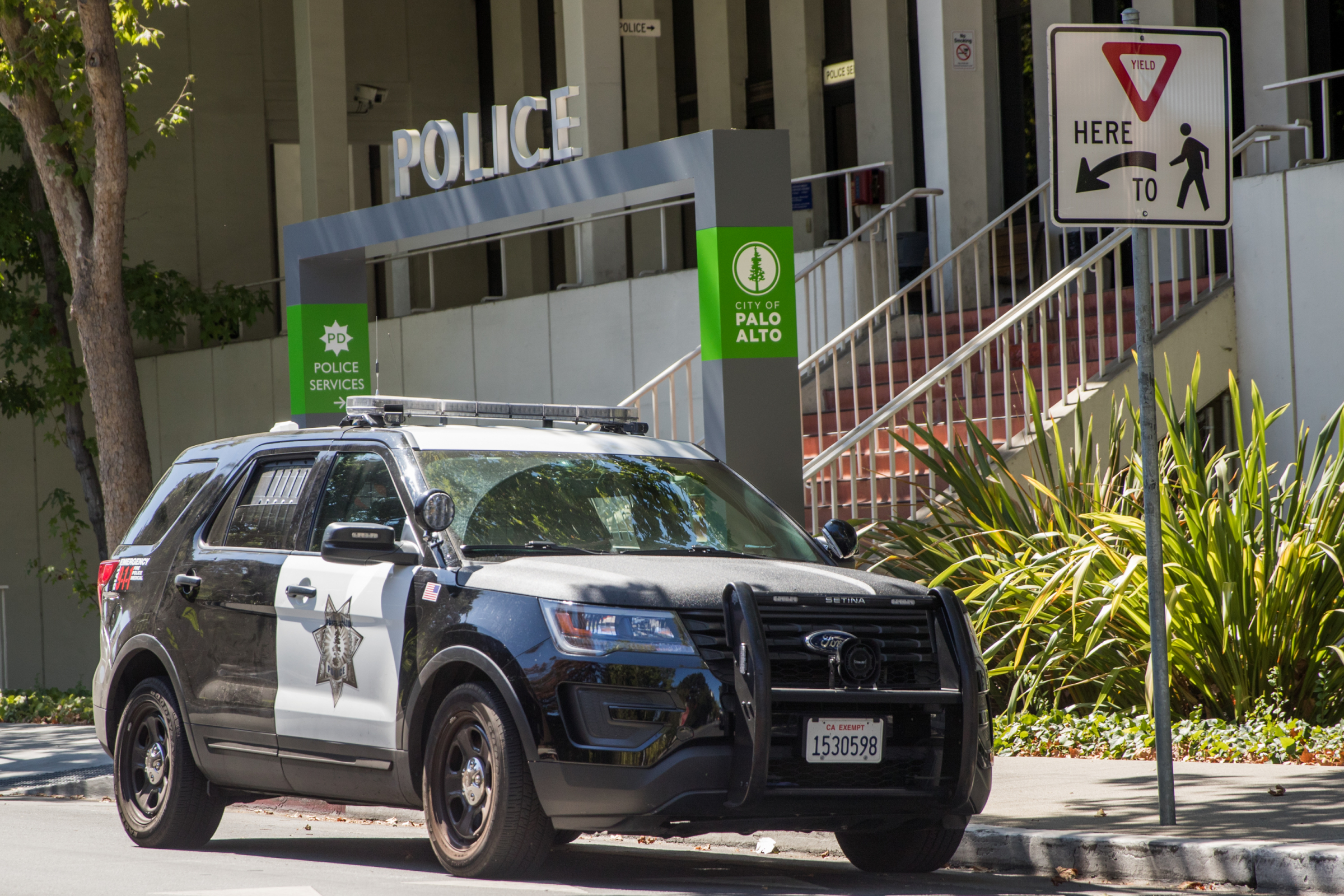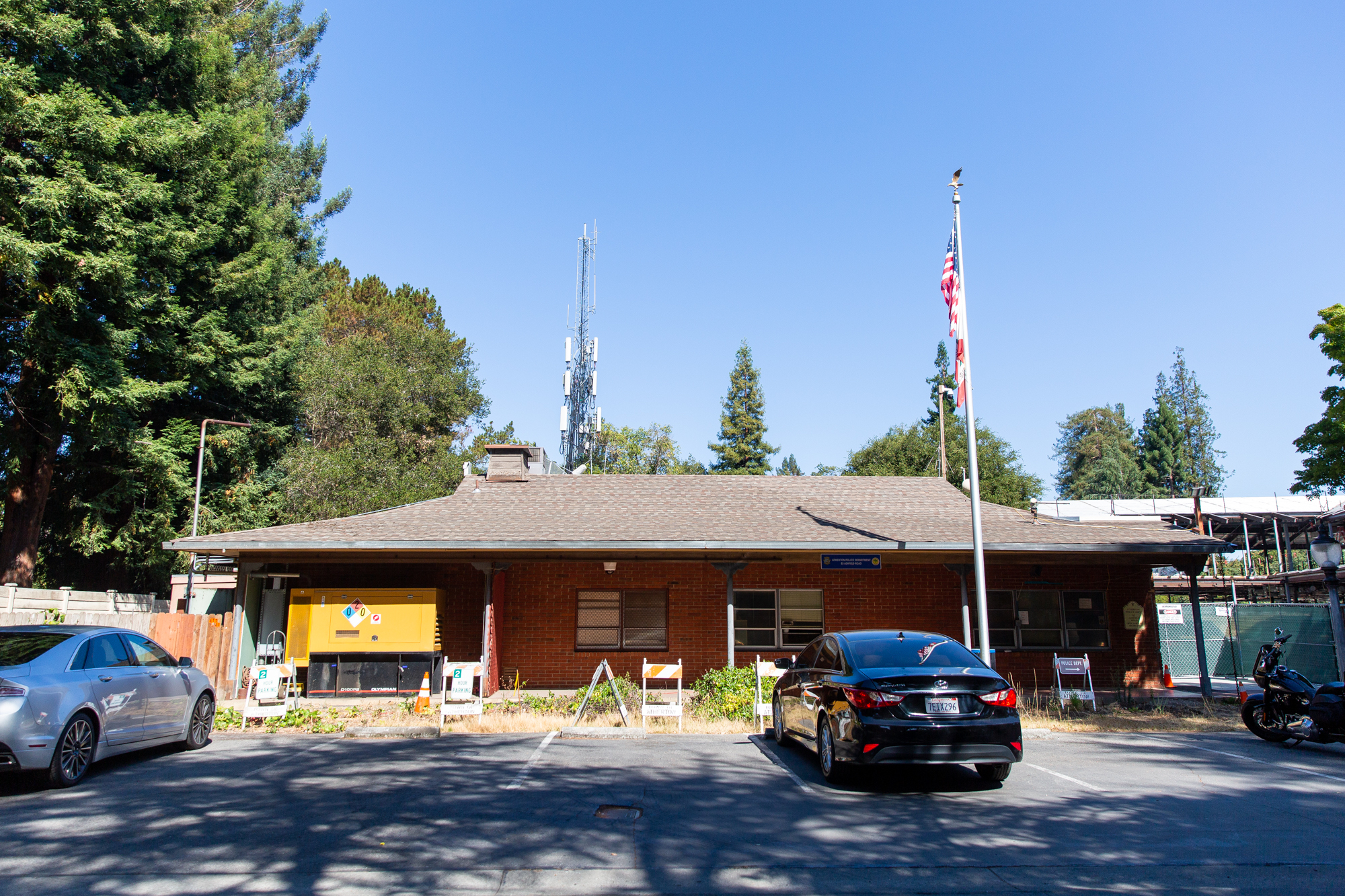After pledging last year to enact meaningful police reform only to fall well short of their goals, California state legislators are now advancing the most ambitious proposal on the table — a bill that would permanently strip badges from police officers found guilty of serious misconduct.
Known as Senate Bill 2, the legislation from Steven Bradford, D-Gardena, would create a process for decertifying police officers who commit crimes, thus ensuring that they would not be hired in another jurisdiction. Decisions on decertification would be based on recommendation by a new nine-member panel known as the Peace Officer Standards Accountability Advisory Board, which will include officers, academics, members of nonprofits and victims of police misconduct.
The movement to create a decertification process gained momentum last year, after the murder of George Floyd by a Minneapolis police officer sparked national calls for police reforms. But while state lawmakers passed a few bills pertaining to police conduct — including one that banned the carotid restraint and another that expands the state attorney general's purview over deadly shootings by police officers — Bradford's decertification bill never got to a vote.
Things are looking considerably more promising this year. Even as legislators continue to debate key details of the legislation — most notably, the composition of the review board — SB 2 has already cleared several significant hurdles. On May 26, exactly a year after Floyd's murder, the state Senate voted 26-9 to advance this bill, sending it to the Assembly.
If the bill passes, California would lose its infamous status as one of only four states that does not have a process for decertifying officers. Democrats in the state Senate were mindful of the fact when they voted to support the legislation, easily overriding Republican opposition. In describing the bill to his colleagues before the Senate vote, Bradford emphasized that SB 2 is not an "anti-police" bill but an "anti-bad cop" bill. He noted that almost 1,000 people across the nation have been killed by police officers since the murder of Floyd.
"It is unacceptable that officers can commit misconduct in one department and simply move to another one without any repercussions," Bradford said at the May 26 hearing. "This is not fair to the community, not fair to victims of police abuse and, most importantly, unfair to the majority of police officers who do their jobs every day by the book, who put on that uniform, pin on that badge and do it in an honorable and respectful way."
Even with the Senate's vote, however, the bill's fate remains far from certain. Numerous Democrats who voted for the bill criticized the composition of the nine-member board and conditioned their support on amendments to this portion of the legislation. They also reserved the right to vote against the bill after it clears the Assembly — presumably with some changes — and returns to the Senate for reconciliation.
The legislation designates two seats on the board for police officers or former police officers, one of whom would have experience at command rank and another with experience in internal investigations or disciplinary proceedings involving officers. Two seats would go to members of nonprofits or academic institutions that deal with issues relating to police accountability and two others would go to members of community-based organizations involved in police accountability.
The panel would also include two members who have been "subject to wrongful use of force likely to cause death or serious bodily injury by a peace officer" or who are surviving family members of a person killed by the wrongful use of deadly force by an officer, according to the legislation. And it would include an attorney with experience in police oversight.
Sen. Dave Min, D-Irvine, was among those who suggested that the composition of the board is skewed heavily against officers. Seven of the nine members, he argued, would have "some kind of predisposition to perhaps being opposed to the police."
"For those of us who are attorneys in this room, if you saw a jury made up with three quarters of the members having some experience in their lives or some personal experience that made them predisposed against that, I think you would find that that's a problematic jury. ... We have to create in my view a fair and impartial process for dealing with police officers," Min said during the May 26 hearing. "This process right now is flawed."
Among the general public, the idea of decertifying officers found guilty of misconduct is broadly popular, according to a study released in March by California State University, Fullerton. The survey showed 88.3% of respondents saying they support such a reform. Only proposals to require de-escalation training (94.8%), equip officers with body-worn cameras (93.7%) and use early-warning systems to identify problematic officers (88.9%) scored higher.
Locally, the Bradford bill has been relatively popular. Palo Alto City Council voted unanimously on June 22 to support the bill, as well as three other bills that would, respectively, expand the categories of police documents subject to public disclosure; require police departments to immediately report excessive force by an officer; and require departments to disclose investigations into officer misconduct even if an officer leaves the department.
Palo Alto Police Chief Robert Jonsen said he supports SB 2, though he also said he would like to see some refinements when it comes to the composition of the panel. The board, he said, should be well-trained and its members should have the needed experience to make informed decisions about decertification of officers.
"I do think it would be great if we had a system that helped chiefs keep officers that are found to be convicted for misconduct from becoming eligible to come back to a police department or a police agency anywhere in the state," Jonsen told this news organization.
While most city councils and law enforcement officials across the Midpeninsula have not taken positions on SB 2, the district attorneys in both San Mateo and Santa Clara counties said they support a process for removing cops that engage in misconduct.
"The public doesn't want bad cops on the force," Santa Clara County District Attorney Jeff Rosen said in a written statement. "The cops don't want bad cops on the force. I don't want bad cops on the force. We need an effective, fair process to accomplish this goal. I'm hopeful the legislature will create one."
San Mateo County District Attorney Steve Wagstaffe said the police decertification bill is "probably a good idea." Professional and regulatory organizations such as the California Bar Association can decertify their members for malpractice.
"Just like lawyers and doctors, it fits into the same category," he said.
Some bad cops just find jobs elsewhere, he said. He recalled two officers in East Palo Alto who had been shaking down drug dealers for money on the streets. Both were found not guilty by a jury. One resigned; the other left to get a job in the police department in Honolulu, Hawaii, he said.
No one ever called him to find out about that officer, Wagstaffe said.
"There ought to be a process," he said, for identifying and decertifying any professional charged with the public trust, whether it is a firefighter or law enforcement employee.
At a recent meeting of police chiefs, Wagstaffe said there wasn't a dispute on the concept of decertification, but there are concerns regarding methodology. Dan Steidle, president of the San Mateo County Police Chiefs and Sheriffs Association and Chief of the Pacifica Police Department, said the association doesn't take political positions, but speaking as a police chief, he thinks that in the proper format, it's good to decertify bad cops.
"No chief wants bad cops on their force," he said.
But, echoing the concerns of some numerous Senate Democrats, he noted that the proposed committee that would oversee the decertification would have only two members with law enforcement backgrounds, which seems skewed.
Atherton Police Chief Steve McCulley similarly said that he fully supports the intent of the bill. That said, he echoed the statement of Chief Abdul Pridgen, president of the California Police Chiefs Association, who said that "even with recent amendments (the bill) fails to create a balanced and even process." The chiefs association has taken a position of opposing SB 2, according to its website.
"We do need a very transparent, fair and non-biased officer decertification system put in place," McCulley said in an email.
While Mountain View Police Chief Chris Hsiung declined to comment on the legislation, Menlo Park Police Chief David Norris took the same position as his Atherton counterpart: support for decertification, in principle, but opposition to Senate Bill 2 in its current form.
"Decertification is an important concept as a tool to prevent people who should not be police officers from finding ways to re-enter the profession," Norris said in an email. "I am aligned with the position of the California Police Chiefs Association, which supports the concept of decertification but is opposed to the bill as written while actively working to find compromise in its language."
While the bill's recent victories in Sacramento offer hope for advocates of police reform, the success of SB 2 will likely hinge on whether Bradford and other bill sponsors manage to make the needed compromises to retain Democratic support when the bill returns to the upper chamber. State Sen. Josh Becker, D-Menlo Park, who enthusiastically supported the bill during the May 26 hearing, said he is confident that this will happen.
"I believe we do need to continue to build greater detail around the facts that merit decertification and the extent of retroactivity," Becker said during the Senate hearing.
Bradford, for his part, said he believed the time has come to take strong action and pass the legislation. In his closing comments he asked his colleagues whether they put more value on the composition of the board or on the lives that have been lost at the hands of police officers.
"I'd rather haggle over the composition of the board than allow lives to be lost," Bradford said. "Some of us are using that as a reason to hide behind this."




Comments